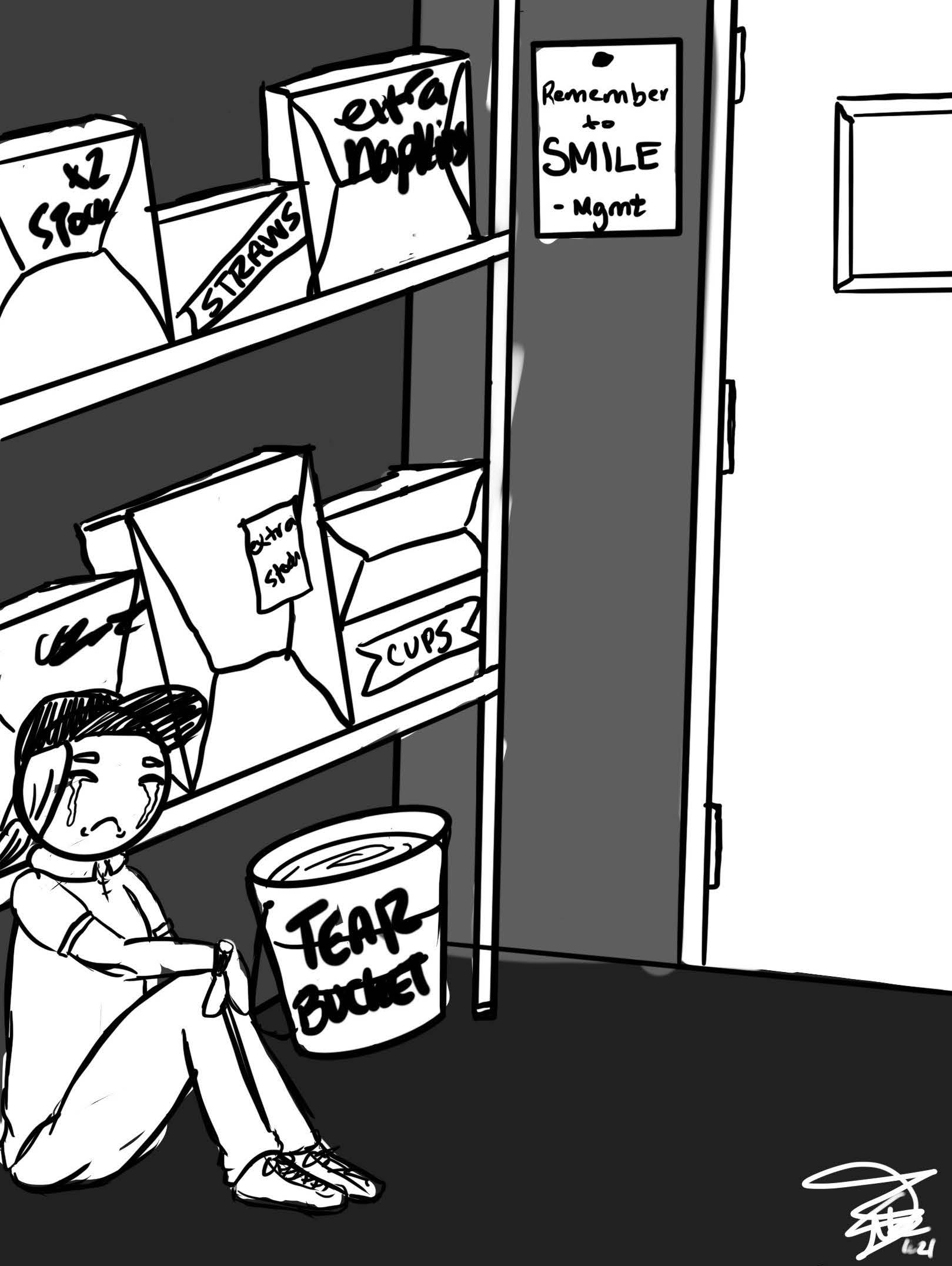Pictured Above: “I definitely have been treated as less than human by some customers,” freshman USF Tampa student Meghan Ciemnolonski said.
Sophie Ojdanic | The Crow’s Nest
By Molly Ryan
For me, it took just one latte to realize I needed thick skin to work in the food service industry – thick skin that I did not have at the time.
After pouring in two percent milk instead of nonfat, I’ll never forget being called “incompetent” and “stupid” despite offering to remake the drink free of charge.
Now a nearly two-year veteran in the chaotic whirlwind that is being a Starbucks barista, my perspective on the customer service industry has completely changed. It leads me to wonder: For some, why must it take firsthand experience to truly understand how hard we work?
Why must some know the other end to understand how to treat people with respect?
“I have lost faith in much of humanity since working (in customer service),” environmental studies sophomore Madison White said. “Customers act as though I am ruining their life for mistakes that they made. I have been called the ‘r word’ more than once in one day for no reason… (working) has made me develop a much tougher skin.”
There’s not much in life that can prepare you for being degraded by a complete stranger.
When I first got my job, it was partly as a means of making some extra cash – but, in my mind, it was more so to get adjusted to working before I went to college and would need to start making my own income.
If only I knew that it would only get harder to balance work and school once I entered my first year.
Through the ACT Center for Equity in Learning, Dr. Sarah Blanchard Kyte did an extensive report in 2017 titled “Who Does Work Work For” – detailing the reasons for and the implications of students who worked while attending college.
For many in school, a job – especially in the customer service industry – can lead to additional stress, which may impact their academic success..
Kyte concluded that, “Students from all backgrounds who work more than 15 hours weekly tend to fall behind in their academic progress.”
For USF Tampa freshman and chemical engineering major Meghan Ciemnolonski, these findings rang true.
“Being in school while working a service job is exhausting,” Ciemnolonski said. “You get treated as subhuman for seven hours and then come home to do some assignments… You’re tired and frustrated and some professors just don’t care to work with you sometimes.”
In my experience, it can be much harder to put on a smile and fake that ever-so infamous “customer service voice” when I am thinking about a test that I should be studying for.
In turn, some customers might feel as though my service is not up to par. Sometimes, not saying “thank you” can make the difference of whether you will be getting yelled at that day or not.
“I definitely have been treated as less than human by some customers,” Ciemnolonski said. “I usually just chalk it up to them having a bad day, but when it’s consistent, I know they’re just a bad person and hope they get robbed later.”
But I know I would be a different person today had I never worked in the food service industry; and while it takes courage to admit, I am incredibly thankful for my job.
I now have the thick skin I was lacking at the beginning of my barista journey that would come to help me beyond wearing my green apron and Starbucks visor.
For senior anthropology major Kat Osani, working as a hostess has taught her “a lot about communicating with all kinds of people.”
“I am definitely better at speaking clearly and standing up for myself while still being respectful,” Osani said.
Without this experience, I might still be tipping the hardworking and often poorly treated workers the bare minimum. I might still be taking it personally when a worker is standoffish or unenthusiastic, instead of attributing it to a strenuous shift as I do now.
I’ve learned that patience is key, that perseverance is a priceless virtue and that time management is absolutely no joke.
But most importantly, I’ve learned the significance of just being kind.



